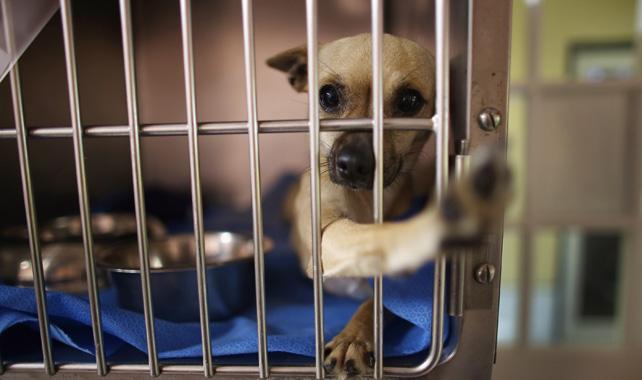
Animal activist group PETA, notorious for their abhorrent disgust at anything
remotely resembling a hint of animal cruelty (they berated child reality star Honey Boo
Boo for calling her pet chicken “Nugget”) has been subject to a cruel twist of
irony: wide criticism has been received about the organisation’s hesitancy to uphold a ‘No Kill’ policy at their animal shelter in Norfolk, Virginia.
The organisation, who encouraged males to go vegan by turning their genitals in to vegetables, and who are frequently chastised about their gender-debasing
commercials in the name of animal welfare, have been put in the line of fire
after The New York Times has revealed that
PETA routinely euthanizes 2000 animals per year at its Norfolk shelter.
Unsurprisingly, the facts have been widely considered a
gross hypocrisy coming from the highly outspoken organisation that discourages
American families from eating Turkey at thanksgiving, and has been known to hurl red
paint over fur-wearing individuals.
The issue of ‘no kill’ shelters is far-reaching and complex; naturally,
controversies surrounding animal euthanasia and PETA’s involvement are likely
to stir. In the US, an animal shelter can receive a ‘no kill’ status if more
than 90% of its animals aren’t put down. Last year, PETA’s shelter in Norfolk
only had 19 adoptions of cats and dogs, bucking the countrywide trend where
adoption is up; euthanasia is down, according to The New York Times.
PETA’s defense on their policies of euthanasia and adoption are steadfast, as
they maintain their view ultimately considers animal welfare as their priority.
According to a statement on their website, PETA considers ‘no kill’ shelters as
idealistic, where animals often cop worse treatment than being peacefully put
to rest, saying no kill shelters are:
“deceptive
at best. Animals at “no-kill” shelters who have been deemed
unadoptable may be “warehoused” in cages for years. They become
withdrawn, severely depressed, or aggressive, and this further decreases their
chances for adoption. Cageless facilities avoid the cruelty of constant
confinement but unintentionally encourage fighting and the spread of disease
among animals.
One PETA staffer who used to manage a “no-kill” shelter had a change of heart after seeing a pit bull who had lived in a cage for 12 years. He had gone mad from confinement and would spend the day slamming his body against the sides of his cage, becoming so enraged that the workers were afraid to handle him. After witnessing this miserable life, she realized that some fates truly are worse than death.”
Richard Avanzino, Director of Maddie’s Fund—responsible for kick-starting the no-kill movement in 1999—counteracted PETA’s sentiments after seeing widespread no kill shelter success by calling their policies “outdated” and “absolute idiocy”.
In Australia, last year the reportedly high ‘kill rates” invoked the RSPCA to encourage “no kill” animal shelters, in an attempt to dwindle the 56,000 euthanasia procedures of cats and dogs in 2011.
Via The New York Times.
Title image by Joe Raedie for Getty Images.



